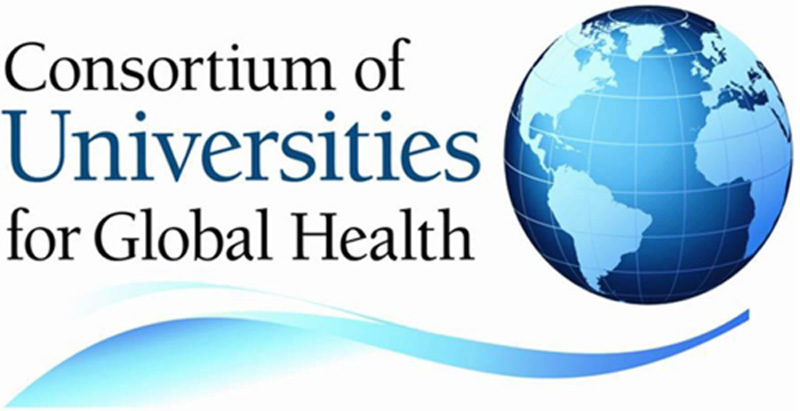April 29, 2020
COVID-19 has highlighted the risks posed by the spillover of deadly infectious diseases from animals to humans. This crisis is also an opportunity for policymakers to invest in known interventions that can reduce the threat of future pandemics and provide additional benefits that can improve the health of people and that of the planet.
This webinar showcases experts from around the world who will share what we can do to achieve these goals by:
-Reducing disease spillover and pandemic prevention
-Strengthening the Global Health Security Agenda
-Reducing the trafficking and consumption of endangered species: a risk factor for spillover and a major cause of the current extinction crisis which is a neglected threat to human health
Speakers:
Dr. K. Yoganand
Regional Lead for Wildlife and Wildlife Crime
WWF Greater Mekong Programme Office, Laos
Dr. Yoganand is a wildlife ecologist and conservation biologist with over 20 years of post-graduate experience in the tropics of Asia and Africa, and over 10 years of experience in managing and implementing wildlife conservation actions. His research and conservation work covered various mammals and their forest and savanna habitats in South and Southeast Asia and southern Africa, and he has produced substantial research outputs and significant conservation outcomes. Yoganand is part of the regional conservation team of WWF in the Greater Mekong region of southeast Asia. He works on preventing the extinction of endangered species populations, stopping defaunation and ending illegal wildlife trade.
Dr. Jonna Mazet
Executive Director
One Health Institute, University of California, Davis
Jonna Mazet, DVM, MPVM, PhD, is a Professor of Epidemiology and Disease Ecology at the UC Davis School of Veterinary Medicine and Executive Director of the UC Davis One Health Institute. Her work focuses on global health problem solving for emerging infectious diseases and conservation challenges. She is active in international One Health education, service, and research programs, most notably in relation to pathogen emergence; disease transmission among wildlife, domestic animals, and people; and the ecological drivers of novel disease dynamics. Currently, Dr. Mazet is the Co-Director of the US Agency for International Development’s One Health Workforce – Next Generation, an $85 million educational strengthening project to empower professionals in Central/East Africa and Southeast Asia to address complex and emerging health threats, including antimicrobial resistance and zoonotic diseases. She is the Principal Investigator of and served as the Global Director of PREDICT Project for 10 years, a greater than $200 million viral emergence early warning project under USAID’s Emerging Pandemic Threats Division. PREDICT served as an early-warning system-strengthening effort aimed at finding emerging viruses before they spread to humans. Since 2009, PREDICT has empowered partners in over 30 countries to deploy a One Health approach for zoonotic disease prevention, detection, and response, including supporting 60 laboratories in the world’s most risky areas for spillover to be able to do virus discovery. Our teams have collected and tested samples from over 164,000 animals and people and detected almost 1,200 potentially zoonotic viruses, among them 160 novel coronaviruses, including multiple SARS- and MERS-like coronaviruses. PREDICT provided the proof-of-concept for the Global Virome Project, for which Mazet serves on the board of directors. She was elected to the US National Academy of Medicine in 2013 in recognition of her successful and innovative approach to emerging environmental and global health threats and serves on the National Academies of Science, Engineering, and Medicine’s Forum on Microbial Threats and chairs the Academies’ One Health Action Collaborative. She was appointed to the National Academies Standing Committee on Emerging Infectious Diseases and 21st Century Health Threats, which was created to assist the federal government with critical science and policy issues related to the COVID-19 crisis and other emerging health threats.
Dr. Christian Walzer
Executive Director
Global Health Program, Wildlife Conservation Society
Chris Walzer has international recognized expertise working with wildlife, especially wild equids and carnivores, gained from combined years of work and study in Europe, Asia and Africa.
Moderator:
Keith Martin, MD, PC
Executive Director, CUGH
Dr. Martin is a physician who, since Sept. 2012, has served as the founding Executive Director of the Consortium of Universities for Global Health (CUGH). Between 1993-2011, Dr. Martin served as a Member of Parliament in Canada’s House of Commons. He held shadow ministerial portfolios in foreign affairs, international development, and health. He also served as Canada’s Parliamentary Secretary for Defense and was appointed to the Queen’s Privy Council for Canada. His main areas of focus are in global health, foreign policy, security, international development, conservation and the environment. Dr. Martin has served on numerous diplomatic missions to areas in crisis and served as a physician in South Africa on the Mozambique border during that country’s civil war. He has traveled widely in Africa, visiting the continent 28 times. He has had over 170 editorial articles published in major newspapers and has appeared frequently as a political and social commentator on television and radio.
